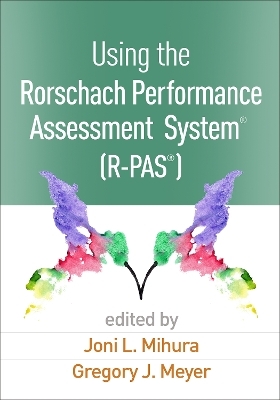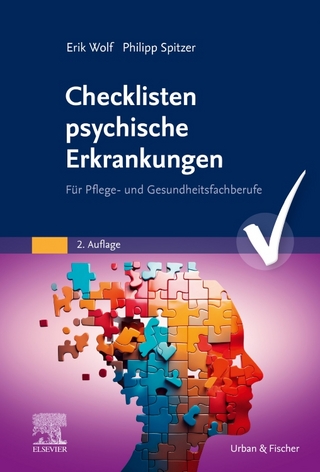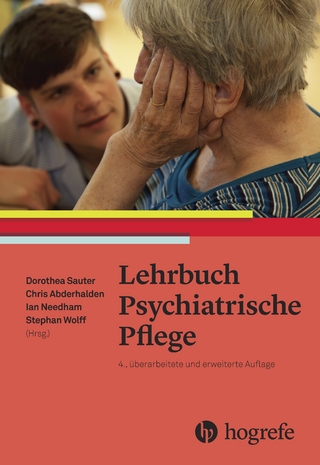
Using the Rorschach Performance Assessment System® (R-PAS®)
Guilford Press (Verlag)
978-1-4625-3253-7 (ISBN)
Joni L. Mihura, PhD, is Professor of Psychology at the University of Toledo, where she teaches personality assessment, advanced assessment, and psychodynamic/integrative psychotherapy. She received early career awards from the American Psychoanalytic Association and the Society for Personality Assessment (SPA), as well as the Walter G. Klopfer Award for Distinguished Contribution to the Literature from SPA, and is a Fellow and past board member of SPA. Dr. Mihura serves on the editorial boards of the Journal of Personality Assessment and Rorschachiana, has published many articles and chapters on psychological assessment, and is coeditor of the Handbook of Gender and Sexuality in Psychological Assessment. She is a codeveloper of R-PAS (www.r-pas.org) and presents invited lectures and trainings internationally. Gregory J. Meyer, PhD, is Professor of Psychology at the University of Toledo. His research focuses on psychological assessment, with an emphasis on the integration of assessment methods. He is a four-time recipient of the Walter G. Klopfer Award for Distinguished Contribution to the Literature from the Society for Personality Assessment (SPA). Dr. Meyer also received the Award for Distinguished Contributions to Assessment Psychology from Section IX (Assessment Psychology) of the Society of Clinical Psychology, Division 12 of the American Psychological Association (APA), and is a Fellow of Division 5 (Quantitative and Qualitative Methods) of APA, as well as of SPA. With more than 75 peer-reviewed publications, he is a past editor of the Journal of Personality Assessment. He is a codeveloper of R-PAS (www.r-pas.org) and presents invited lectures and trainings internationally.
I. The Basics of R-PAS and Its Interpretation
1. Introduction to R-PAS, Joni L. Mihura & Gregory J. Meyer
2. Principles of R-PAS Interpretation, Joni L. Mihura & Gregory J. Meyer
3. Using R-PAS Norms with an Emphasis on Children and Adolescents, Gregory J. Meyer & Philip Erdberg
II. Using R-PAS in Clinical Settings
4. The Broken Zombie: Using R-PAS in the Assessment of a Bullied Adolescent with Borderline Personality Features, Jan H. Kamphuis, Hilde De Saeger, & Joni L. Mihura
5. When Wolves Fall from the Sky: Using R-PAS in the Early Detection of Psychosis in an Adolescent, James H. Kleiger & Ali Khadivi
6. An Inpatient R-PAS Case with a Recent Suicide Attempt, Ali Khadivi
7. Understanding a Therapeutic Impasse: Using R-PAS in a Multimethod Assessment of Alliance Dynamics and Underlying Developmental Disruption, Anthony Bram
8. Using R-PAS in the Therapeutic Assessment of a University Student with Emotional Disconnection, Francesca Fantini & Justin D. Smith
9. How Individual R-PAS Protocols Illuminate Couples’ Relationships: The Role of a Performance-Based Test in Therapeutic Assessment with Couples, Filippo Aschieri, Alessandra Chinaglia, & Andrea B. Kiss
III. Using R-PAS in Forensic Evaluations
10. Using R-PAS in a Criminal Responsibility Evaluation to Assess Insanity, Marvin W. Acklin
11. Using R-PAS in Violence Risk Assessment, Saara Kaakinen, Emiliano Muzio, & Hannu Säävälä
12. Using R-PAS in the Assessment of Possible Psychosis and Trauma Intrusions in a Psychopathic Female, Peder Chr. B. Nørbech, Ellen J. Hartmann, & James H. Kleiger
13. Using R-PAS in Family Law Cases, S. Margaret Lee
14. Using R-PAS in the Assessment of Psychological Variables in Domestic Violence, Nancy Kaser-Boyd & Reneau Kennedy
IV. Using R-PAS in Pre-Employment, Neuropsychological, and Educational Evaluations
15. Using R-PAS in the Pre-Employment Evaluation of a Candidate for a Roman Catholic Seminary, Philip Keddy
16. Using R-PAS in a Neuropsychological Evaluation of a High-Functioning Adult Patient with Depression, Anxiety, and a Relational Trauma History, Nicolae Dumitrascu
17. Using R-PAS in the Neuropsychological Assessment of an 8-Year-Old Boy, Jessica Lipkind & Jack Fahy
18. Being in Pain: Using R-PAS to Understand the (Non-)Dialogue of Body and Mind, Ety Berant
19. Using R-PAS in the Evaluation of an Emotional Disturbance in the School Context, Tammy L. Hughes, Kate Piselli, & Cassandra Berbary
Index
| Erscheinungsdatum | 31.01.2018 |
|---|---|
| Verlagsort | New York |
| Sprache | englisch |
| Maße | 178 x 254 mm |
| Gewicht | 940 g |
| Themenwelt | Geisteswissenschaften ► Psychologie ► Klinische Psychologie |
| Geisteswissenschaften ► Psychologie ► Test in der Psychologie | |
| Medizin / Pharmazie ► Medizinische Fachgebiete ► Psychiatrie / Psychotherapie | |
| Pflege ► Fachpflege ► Neurologie / Psychiatrie | |
| Sozialwissenschaften ► Soziologie | |
| ISBN-10 | 1-4625-3253-5 / 1462532535 |
| ISBN-13 | 978-1-4625-3253-7 / 9781462532537 |
| Zustand | Neuware |
| Haben Sie eine Frage zum Produkt? |
aus dem Bereich


